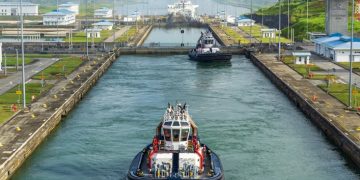KSE Institute has issued a report titled “Creating Shadow-Free Zones,” highlighting the environmental dangers posed by Russia’s shadow fleet.
On the report KSE researchers propose a mechanism to enforce a requirement for proper oil spill insurance and thereby create “shadow-free zones” to mitigate risks to the environment. Since 2022, Russia has poured $10 billion into expanding its shadow fleet to evade the G7+ oil price cap. Furthermore, over 70% of its maritime oil exports are now transported by inadequately insured ships, which increases the risk of a significant oil spill in European waters. Meanwhile, in the first half of 2024, nearly 75% of Russian oil was exported from Baltic and Black Sea ports, with 60% of that transported on shadow tankers, the report notes.
Additionally, the KSE Institute report outlines a strategy to mitigate the environmental risks associated with Russia’s shadow fleet. The recommended approach emphasizes the enforcement of a mandate for adequate oil spill insurance to enhance maritime safety. Key elements of the strategy include:
#1 Insurance disclosure
Vessels in coalition waters must show proof of compliance with spill insurance requirements established in international conventions and IMO regulations, including documentation that allows to assess the coverage’s adequacy, such as audited financials and a credit rating from a recognized agency.
#2 Enforcement mechanism
- Diplomatic outreach: Work within the existing regulatory framework by pushing flag states and classification societies to ensure tankers have proper oil spill insurance and comply with all international rules and regulations.
- Commercial incentives: Hold flag states, certification societies, shipowners, and charterers accountable for non-compliance with the insurance requirement as well as the consequences of an incident.
- Designation of uninsured vessels: Sanction tankers that fail to comply with the insurance requirement or carry inadequate coverage, thereby removing them from operations.
- Interdiction in high-risk cases: Coalition countries should have the authority to stop vessels posing immediate environmental or safety risks.
The Institute’s strategy guarantees that international maritime law rights are upheld and that oil markets remain stable, preventing potential price increases. The plan aims to safeguard the environment and maintain the integrity of global oil supply as follows:
- Minimal disruption: A credible sanctions threat will compel shadow fleet operators to comply, as non-compliance would result in significant financial losses from sidelined ships. The existing oil spill insurance systems allows to easily acquire adequate coverage.
- No impact on oil prices: Since the start of the shadow fleet designation campaign in late 2023, tanker listings have not affected oil prices. Data analysis shows that they are largely driven by OPEC+ decisions, not sanctions.
- Limited impact on Russian exports: With low production costs of $10-15/barrel, Russia is unlikely to cut oil exports. It can also not afford to do so, given its dependence on oil for export earnings and budget revenues.



























































